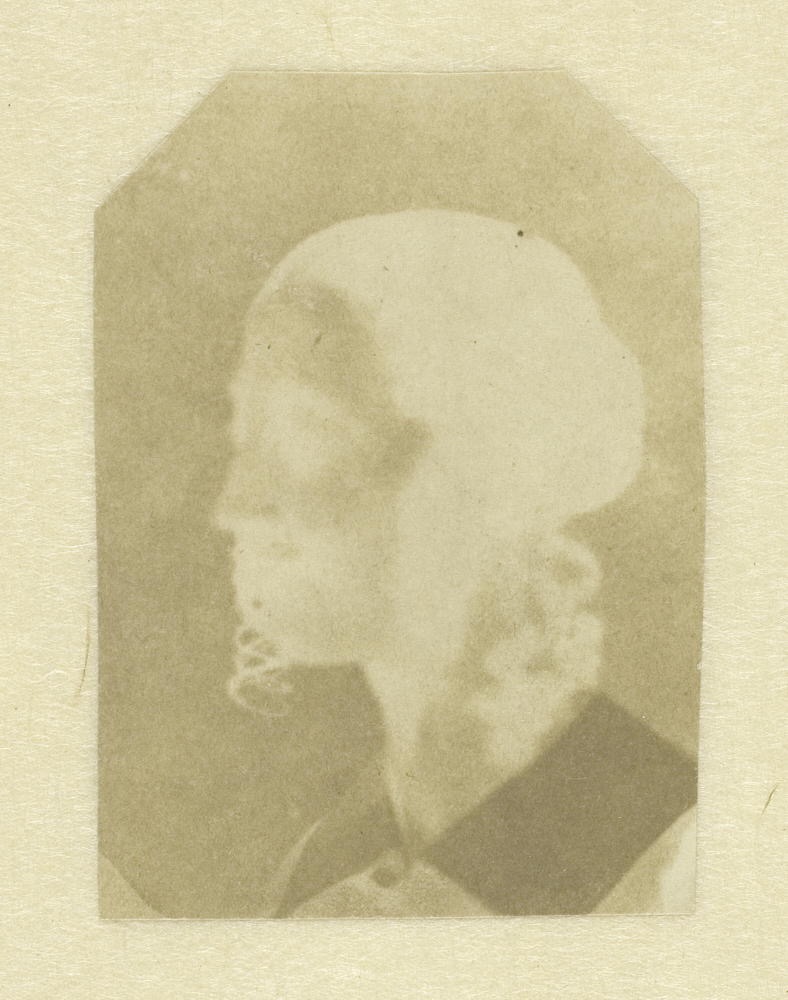Halfsies

William Henry Fox Talbot: [Calotype negative]
Portrait of Talbot’s Wife (Constance)
or Half-Sister (Caroline or Horatia) (c. 1842)
"It's a one-way road."
The Muse and I toodled to Tucson for the expressed purpose of seeing Elizabeth, who'd lost her husband, Rich, last October. Rich and Elizabeth had been present at our wedding and had been good if distant friends and helpers for three decades, even before The Muse and I had discovered each other. They'd sheltered me when I visited their Menlo Park neighborhood and extended every courtesy and support over many adventures. Rich and Elizabeth (never Elizabeth and Rich) were like a single entity to me, as couples become after long proximity. They became indistinguishable from each other, parts of a distinct whole, each fulfilling their functions to create their unique presence. I held considerable angst about visiting with Rich absent. I didn't know what to expect.
The house seemed welcoming, though I immediately noticed the prominent absence—the same dog, the same decor, but absent some once-prominent markers. Elizabeth, too, seemed a little less dimensional than when we'd last seen her four years before. She was now a veteran of a year of supervising treatments leading up to Rich's departure. She'd increasingly made her own decisions after decades of sharing that burden. Now she was fully engaged in solidifying the separation, boxing LPs, jettisoning stuff that suddenly seemed meaningless. She spoke as if speaking to herself, a shift from someone trained as a counselor and therapist. It appeared as if she was struggling to make sense, and I felt deep empathy for this, trying to imagine how I might look if I had suddenly lost about half my brain.
The Muse and I remain separate organisms but tenaciously symbiotic ones. I do for her, and she does for me as seamlessly as if we were each only doing for ourselves. We share little and big responsibilities without explicitly delineating which parts of these we will each assume. Increasingly, our shared life has grown tacit to the point where very few of these separations ever need to become explicit. Like anybody, we occasionally surprise each other with the depth of our misunderstandings, but mainly, our symbiotic system works flawlessly. She cedes to me, and I to her, and we operate as if we together constitute an independent whole.
Rich and Elizabeth and every long-married couple operated more or less in this same milieu. We do without thinking too deeply about what we're doing, if only because living would be impossible if we insisted on maintaining more explicit terms and conditions upon our engagements. We mostly fall into our roles, gravitating toward what we each prefer, and while some imbalance inevitably remains, the arrangement seems equitable. Lose half that couple, though, and a stable system stalls. A different whole must be invented and emerge. Much that had been decidedly implicit suddenly and terrifyingly becomes explicit and demands defining. My heart aches as I witness our dear Elizabeth coping with what's left of her world and what’s emerging.
I can't pretend that she's anything like a victim. Her situation seems nothing if not ordinary. It eventually happens to almost everybody. Our divorces and dismemberments serve as practice rounds for the more permanent and stark disappearances, but we're each, then, called upon to fill in for our missing half. We have no real idea all that other half actually did. We discover our deeper appreciation in their absence. We discover some deeper frustration there, too, for it's suddenly, shockingly, and achingly just up to you to figure out again, as if you ever had before. Sure, old friends and colleagues will stop by to visit and share their condolences and accept tokens from the departed's possessions, and nothing will ever be very much the same again. It's a one-way road.
©2024 by David A. Schmaltz - all rights reserved


